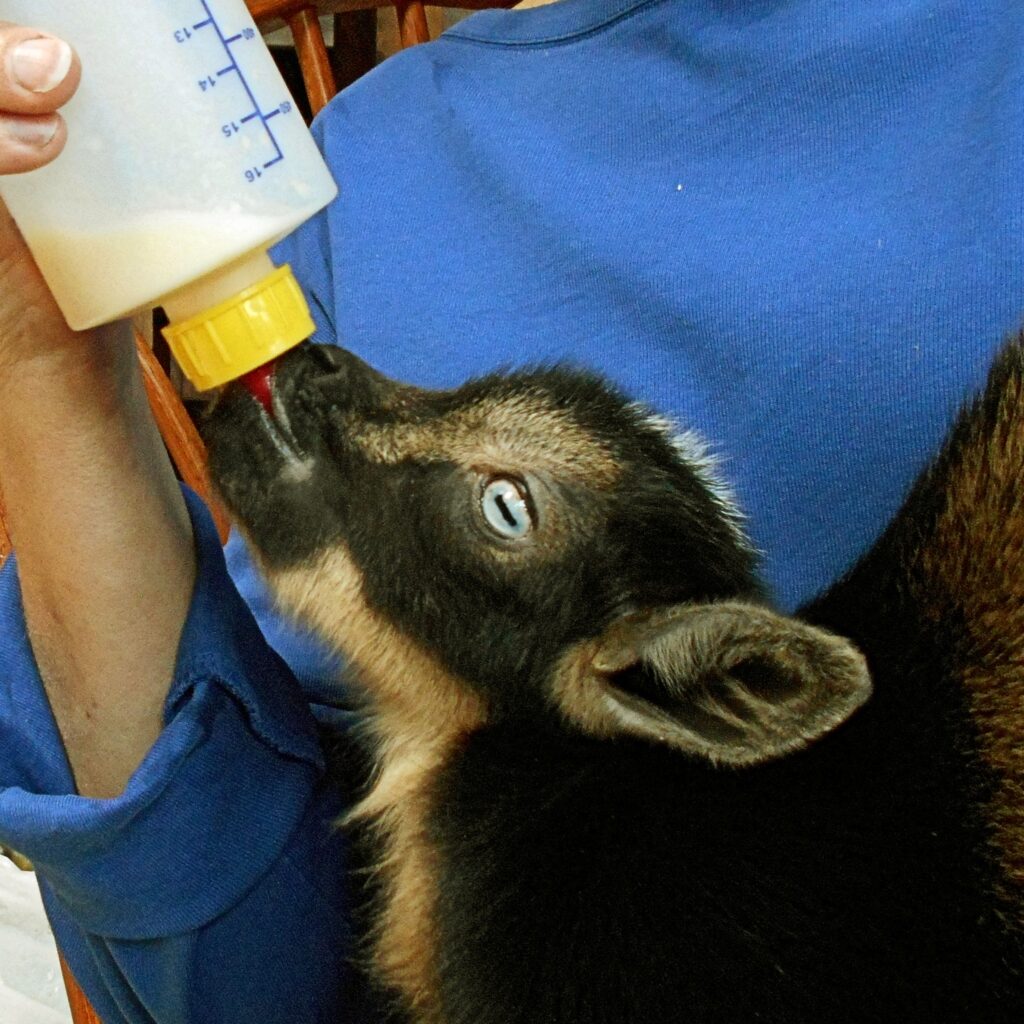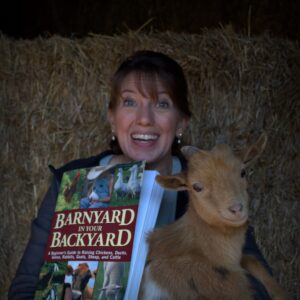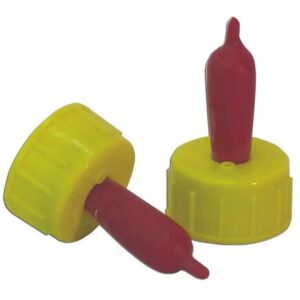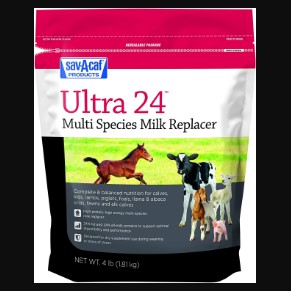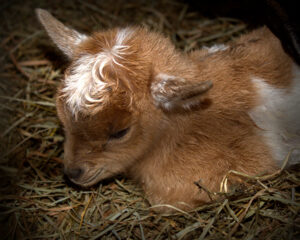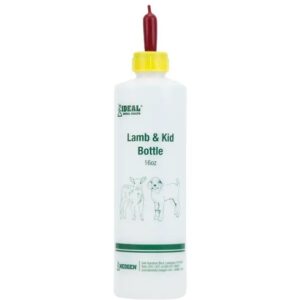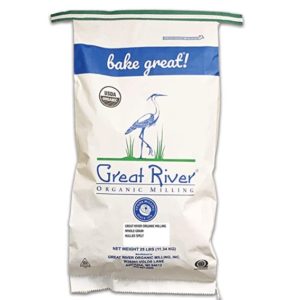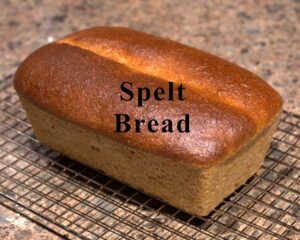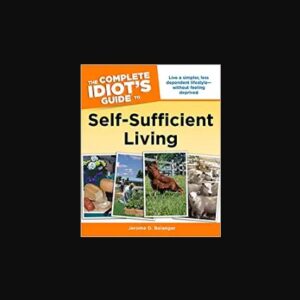How We Bottle Feed Kid Goats at Our Homestead
How We Bottle Feed Kid Goats at Our Homestead
Last updated: August 13, 2023
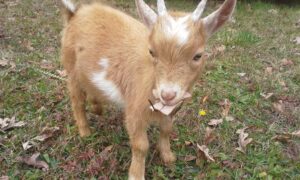
At our homestead, we prefer to allow the goat mother to raise her kids. However, there are situations where this is not possible or would cause complications for the kid. Goat kids require special care when bottle feeding. The kid is still internally changing and nutritional needs should be understood. Understanding what a young goat needs aids the goat kid in growing and thriving.
This blog will review the following:
Disclosure of Material Connection: Some of the links in this page or post may be “affiliate links”. This means that if you click on the link, Pioneer Mountain Homestead, LLC may receive an affiliate commission at no direct cost to you. Pioneer Mountain Homestead, LLC only recommends products or services that the owners, managers, or employees of Pioneer Mountain Homestead, LLC use or believe will add value to the readers of this website. This disclosure is made with the Federal Trade Commission’s 16 CFR, Part 255: “Guides Concerning the Use of Endorsements and Testimonials in Advertising.”
Situations Where We Bottle Feed
At our homestead, we try to allow nature to rule over intervention, however, there are situations where we must bottle feed or risk losing the kid. Some of the situations we have encountered over the years are: mother goat dies in birth or shortly after birth (obviously these kids are automatic bottle babies and in 17 years we’ve only had this happen one time); the mother goat rejects one or all kids; first time mothers that aren’t quite getting everything right or aren’t allowing the kids to nurse or nurse enough; an injured kid that is unable to fend for itself; a mother goat that suffers an injury to a teet; multiple births where one or two kids push the other kids away due to competition; and severe cold where kids are brought inside to avoid hypothermia.
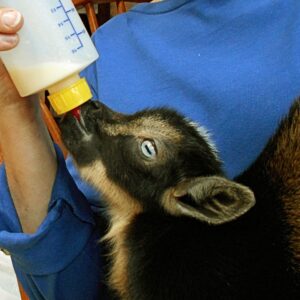
Some farms automatically bottle feed for various reasons. Milking farms may want the extra goat milk. Some farms believe that it is easier to manage feed levels by pulling the kids from the mothers. For a production farm, this may be the only answer. However, for us we strive for a balance between being reasonable and raising the best happy, healthy goats.
The Digestive System of A Kid Goat
The digestive system of a kid goat is very different from the digestive system of an adult goat. In an adult goat, the rumen is the largest stomach chamber. However, a newborn goat kid has a tiny non-functioning rumen. Instead, the abomasum (or true stomach) is the largest chamber. When the kid drinks milk, the milk is diverted from the rumen and reticulum and sent into the abomasum. The esophageal groove is responsible to bypass the rumen and reticulum. The rumen is not well designed to digest milk in both kids and adults.
The fact that a kid’s digestive system is different from an adult’s is important to note as if the kid overeats and fills the abomasum, the overage of milk can back up into the rumen and reticulum and can risk death to the kid.
When the kid drinks, the milk passes through the omasum and into the abomasum where it coagulates into a gel (similar to cheese) with the help of the enzymes chymosin and pepsin. (You may recognize the enzyme chymosin as it is harvested from the gut of kids for making cheese). The gel is then absorbed by the kid.
If a kid has white diarrhea, it most likely is lacking in enzymes and should be corrected by adding enzymes to the milk or adding yogurt to the milk (yogurt is already partially broken down by bacteria). The lack of enzymes can cause the kid to lose weight and starve to death.
What We Feed Bottle Babies and the Importance of Colostrum Milk
If we can feed the mother’s milk or another mother goat’s milk, we choose that first. In the case where we brought kids inside due to extreme cold situations, we milked the mothers and then fed the kids the mother’s milk in bottles in a warmer environment.
If the mother is not producing enough milk or if she is feeding multiples and we are supplementing milk, we use a milk replacement product. Two of our favorites are Sav-A-Caf Ultra 24 Multi Species Milk Replacer and Manna Pro Kid Milk. Milk replacers come in a powdered form that is mixed with warm water to make the milk.
The first milk after birth is very important. This is called the colostrum milk and we try our best to get this from the mother. Colostrum milk provides nutrients and antibodies from the mother. It is at it’s peak after birth and diminishes in the next few days. A product that can be used for colostrum milk is Manna Pro Kid Colostrum Supplement.
The temperature of the milk is important and some kids simply won’t drink if it is not correct. The temperature should be slightly above “blood warm” (103-105 degrees Fahrenheit is ideal). We test the milk’s temperature on our wrists similar to how you would check a human infant’s bottle.
If the kid is being raised by the doe mother, she will supply vitamin B in the milk. The vitamin B in the doe’s milk will decrease over time and is in sync with the developing kid’s rumen. Once the kid’s rumen is established, it will produce its own vitamin B. The mother doe also produces vitamin C in the milk. Kid goats will begin to produce their own vitamin C several weeks after birth. If you are bottle feeding, make certain that the product you are using is fortified with these vitamins.
Another item of importance is the bottle. Our best success is from bottles using the Pritchard nipple. The Pritchard nipple is a flutter valve type nipple. (Don’t forget to cut about a 16” piece off a new nipple to allow the milk to flow). Since we raise Nigerian Dwarf Goats, this is our preferred type. If you raise larger breeds, you may want to research for a better type. Pritchard nipples are for the smaller breeds.
The following feeding amounts are suggested for Nigerian Dwarf Breeds. You will need to research and/or adjust for different breeds. The kid should consume the milk within 10 minutes.

Once weening begins, gradually reduce the times per day and amount given until down to 1 time per day and 8 ounces of milk. At this point, stop feeding milk. Weening may take a couple weeks depending on the kid.
How Long and How Often We Feed
Newborns are fed every two to three hours for the first week of life. (Yes, this is tiring!) After that, we feed every four hours gradually increasing to feedings every six hours.
We allow our kids to nurse up to two months (for bucks) and three months (for does) of age especially if being raised by the doe. This is often a topic of debate, and we are told we are extreme, but this seems to produce the healthiest goats for us. (For note, commercial farms often only feed kids every eight to twelve hours. We find this to be too long between feedings. Commercial goat facilities have reported losses in the 10 to 15% range and to us this is too high. Our belief is the long periods of time between feedings results in stressed kids with gorging food habits that disrupt the stomach structure. A commercial farm may find this feasible for their operation, but we place the health of our animals at the top of our list rather than the money or production business aspect).
While nursing, kids have free choice of hay, minerals, and water. Kids will typically start nibbling on hay within a week after birth.
It is important for kids to nibble hay. This is how they get bacteria (along with other environmental exposures) to populate the upper digestive system. Rumination, which occurs at about two weeks of age, is where the rumen begins to grow and push the abomasum from the center left of the abdominal area over to the right side where it will be located as an adult. Enzymes in the kid’s gut also change with pepsin becoming more dominant.
Why Kids Shiver After Feeding
Kids will shiver after feeding due to the change in blood supply within their bodies. When a kid has a full stomach, the blood supply shifts to the stomach area to aid in digestion. This may cause the kid to feel cold and they begin to shiver. Kids that are fed more frequently in smaller quantities are less likely to shiver as often.
How We Ween Kids
Weening is always stressful for the kids (and the mother does, too). Typically, weening starts at about 6 to 8 weeks of age. If a kid is being raised by the mother doe, we begin separating them from the mother for part of the day. We milk the mother goat prior to returning her to the kids. This goes on for a week or two. This allows the doe a break and gets the kids used to being on their own. We often will put the mother in a pen next to where we are placing the kids. This allows them to still be “together” by seeing one another through the fencing, but does not allow the kids to nurse. This often cuts down on anxiety and the dreaded bawling and calling one another. Eventually the kids are not returned to the mother once and are functioning on their own.
If on a bottle, weening will begin at about the same time, but we reduce the amount fed and spread feedings further apart. Eventually we just stop the bottle feeding when we feel the kid is fine on their own.
One thing to be on the lookout for during weening is coccidiosis. Stress combined with the kid eating more hay and grass may result in an increase in bad bacteria. Look for diarrhea and treat immediately as this can kill a kid. Also check eyelid color. It should be pink. Look into the FAMACHA inner eyelid color charts for more information on this. Pneumonia can also strike a stressed kid so be on the lookout for respiratory issues.
Make sure the kids have plenty of free choice minerals, salt, water, and hay. I give my kids grains at this point, too. Start by giving small amounts and increasing over time. Be certain not to overfeed grains as this can cause digestive issues.
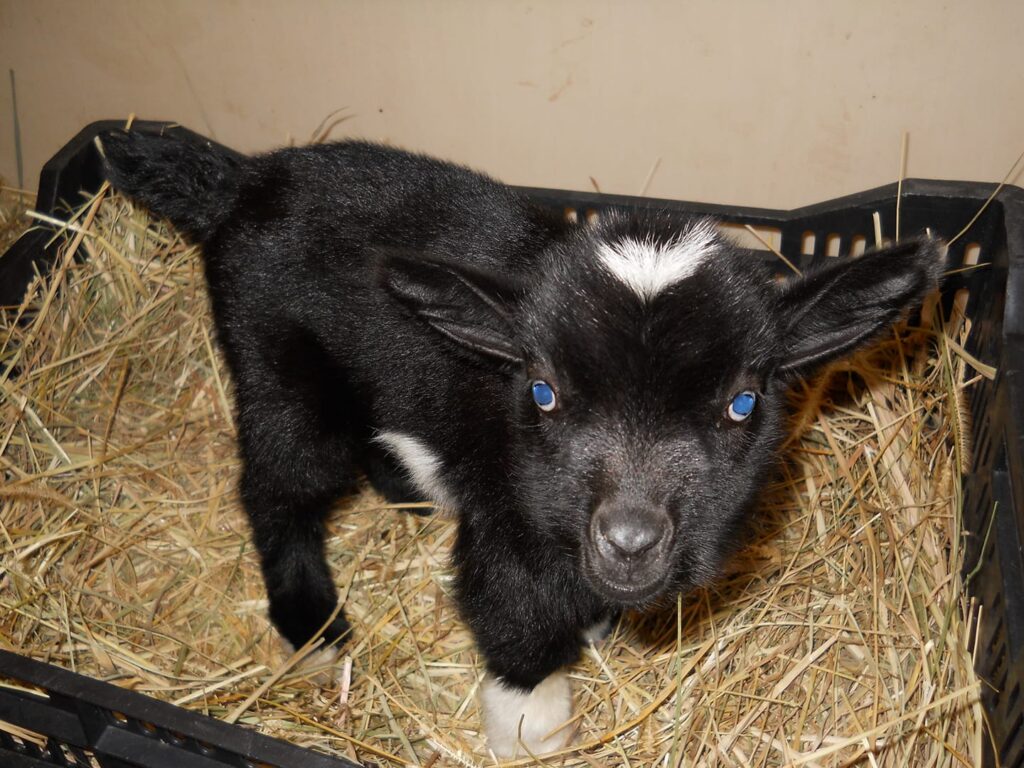
Conclusion
Hopefully this blog gave you a general overview of how we feed our bottle babies. Our goats mean the world to us and we want them to be happy and healthy. If you also bottle feed your kids, please share any insight you have found.
#pioneermountainhomestead #pmhomestead #raystown #pennsylvania #raystownfarm #homesteader #homestead #homesteading #goats #goatkids #kids #bottlefeeding #bottlebabies #bottlefeedingkids #goat #goatkid #kidgoat #kidgoats #farm #goatfarm #farming #farmer #goatfarming
Sources of Information:
Caldwell, Gianaclis. Holistic Goat Care. Chelsea Green Publishing, White River Junction, VT. 2017.
ISBN: 978-1-60358-630-6
Leach, Kent. Aids to Goatkeeping 7th Edition. Tiger Press, Columbia, Missouri. 1971.
Niemann, Deborah. Raising GOATS Naturally. New Society Publishers, Canada. 2013.
ISBN: 978-0-86571-745-9
Thomas, Steven and George P. Looby, DVM. Backyard Livestock 3rd Edition. The Countryman Press, Woodstock, VT. 2007.
ISBN: 13: 978-0-88150-760-7
ISBN: 10: 0-88150-760-1
About the Author:
Hi. I’m Bren at Pioneer Mountain Homestead. My husband and I are full-time homesteaders in the Appalachian Mountains of south-central Pennsylvania. We have a sawmill, produce garden, honeybees, layer hens, laying ducks, pigs, and goats. Additionally, we provide boat and camper storage to nearby visitors of Raystown Lake and sell firewood and lumber. Our journey is to be as self-reliant as we can be; to live as much as we can from the resources we have at hand; to effectively be productive with as minimal environmental impact as possible; to raise food in an organic manner; and to give back to our community through education or demonstration. We are always learning, as well. Life is always an adventure! We enjoy learning from others and seeing what other people are doing as well.

Disclaimer: Pioneer Mountain Homestead blogs and videos are for entertainment purposes only. Please use good judgement and do your own research. Our writings and videos represent our opinions and procedures. We assume no liability for actions taken in conjunction with our blogs and videos.
Thank you so much for your support!
Pioneer Mountain Homestead
16477 Sharman Lane
James Creek, PA 16657
814-505-6426
"Embracing Everything Farm and Forest"
Disclosure of Material Connection: Some of the links in this page or post may be “affiliate links”. This means that if you click on the link, Pioneer Mountain Homestead, LLC may receive an affiliate commission at no direct cost to you. Pioneer Mountain Homestead, LLC only recommends products or services that the owners, managers, or employees of Pioneer Mountain Homestead, LLC use or believe will add value to the readers of this website. This disclosure is made with the Federal Trade Commission’s 16 CFR, Part 255: “Guides Concerning the Use of Endorsements and Testimonials in Advertising.”
